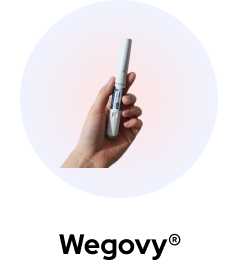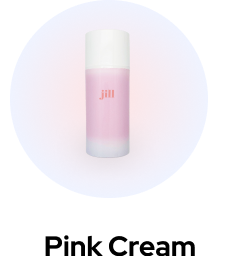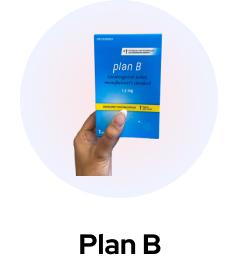Written by: Jill Health Team
Reviewed by: Sarah Bento De Sousa, PharmD RpH
Latisse is generally considered safe for enhancing eyelashes, but understanding its benefits and risks is crucial. In this article, we delve into the safety profile of Latisse, discussing potential side effects and what you can expect during its usage.
It’s important for those seeking longer, fuller lashes to be informed about both the advantages and the precautions associated with Latisse. Join us as we provide the necessary insights to help you make informed decisions about your lash care.
What is Latisse?
Latisse, a potent, prescription-only eyelash treatment, is FDA-approved and specifically intended for enhancing eyelash growth. It is prescribed for individuals with hypotrichosis, a condition characterized by inadequate eyelashes.
As a topical solution, Latisse contains the active ingredient bimatoprost, originally used in eye drops for glaucoma.
Recognized for its eyelash-enhancing properties, Latisse was researched and approved for this specific cosmetic use. Its application involves a doctor’s prescription, ensuring that users receive professional medical advice before starting the treatment.
This consultation also serves to inform users about any potential side effects and how to apply the product safely. For more detailed instructions on applying Latisse, you can refer to this comprehensive guide.
How Does Latisse Work?
Latisse works by applying the solution to the base of the upper eyelashes with a sterile applicator.
The primary ingredient, bimatoprost, is known to affect the growth phase of the eyelash hair cycle. It not only lengthens this phase but also increases the number of hairs that grow during this time.
This action results in longer, thicker, and darker eyelashes. The application is recommended once daily, usually in the evening, and users must follow the prescribed method to ensure both effectiveness and safety.
It’s important to note that the application should only be at the lash line of the upper eyelid, as applying to the lower lid can lead to unwanted hair growth outside the treated area. To understand more about how Latisse works, you can visit this informative page.
Benefits of Latisse
Latisse, known for its effectiveness in eyelash enhancement, primarily benefits users by promoting longer, fuller, and darker eyelashes. Its active ingredient, bimatoprost, extends the growth phase of eyelashes, leading to improved lash appearance and increased confidence in one’s look. Now, let’s take a closer look to each of its benefits one-by-one.
Longer Eyelashes
Latisse is effective in significantly lengthening eyelashes. Users typically notice a visible increase in eyelash length within weeks of consistent use. This effect is particularly beneficial for those with naturally short or sparse lashes, offering a marked improvement in eyelash length.
Thicker Eyelashes
Apart from lengthening, Latisse also enhances the thickness and fullness of eyelashes. The active ingredient bimatoprost promotes more substantial eyelash growth, resulting in fuller and more prominent lashes. This effect contributes to a more youthful and vibrant appearance, as thick lashes are often associated with health and beauty.
Darker Eyelashes
Latisse is known to darken eyelashes, which can reduce the need for makeup such as mascara. This darkening effect is due to the increased melanin production in the eyelash hair follicles, making the lashes appear more pronounced and vivid.
Clinically Proven
The effectiveness of Latisse has been demonstrated in clinical studies. These studies have shown significant improvements in lash length, thickness, and darkness in patients who used the product as directed.
Increases Eyelash Growth Phase
By extending the growth phase of the eyelash hair cycle, Latisse ensures that eyelashes not only grow longer and fuller but also remain in the growth phase for a longer period. This leads to a more sustained enhancement of the eyelashes over time.
Safety Profile
Latisse has been researched extensively for its safety in eye care. The studies and trials conducted have helped establish a comprehensive safety profile, ensuring that users are aware of any potential risks or side effects associated with its use. For more insights into the safety of lash serums like Latisse, explore this detailed analysis.
Prescription Treatment
As a prescription medication, Latisse is recommended and prescribed by healthcare professionals, typically an ophthalmologist, dermatologist, or eye doctor. This professional guidance ensures that users are suitable candidates for the treatment and are informed about the correct usage and potential side effects.
Improved Self-Confidence
Enhanced eyelashes can significantly boost self-confidence and self-esteem. Many users report feeling more attractive and confident with the noticeable improvements in their eyelash appearance.
Alternative to Eyelash Extensions
Latisse offers a viable alternative to eyelash extensions and other cosmetic eyelash treatments. It provides a more natural and less invasive option for enhancing eyelash appearance.
Consistent Results
Users of Latisse generally experience consistent and reliable results. The product’s effectiveness in enhancing eyelash growth has been validated in various patient populations, making it a trusted choice for those seeking to improve their eyelash appearance.
Potential Side Effects and Risks of Latisse
Latisse, while effective for eyelash growth, comes with potential side effects and risks. These can include eye irritation, changes in eyelid skin color, and even the darkening of the iris, which may be permanent.
In this section we’ll discover multiple side-effects of latisse:
Eye Redness
Eye redness is a common side effect experienced by some Latisse users. This condition is generally mild and temporary but can be uncomfortable. It usually occurs due to the direct contact of the solution with the eye surface or surrounding skin.
Itchiness
Itchiness around the eyes, particularly at the application site, is another potential side effect of Latisse. Users are advised to consult a doctor if the itchiness persists or worsens. Proper application techniques can help minimize this risk.
Skin Darkening
Some users may experience skin darkening around the eyelids where Latisse is applied. This side effect is typically reversible after discontinuing the use of the product. The darkening is due to an increase in melanin in the skin areas exposed to the solution.
Eye Irritation
Eye irritation, including a feeling of dryness or soreness, can occur in some individuals using Latisse. Proper application and adherence to the prescribed regimen can help minimize this risk. Users experiencing severe irritation should consult their healthcare provider.
Increased Brown Pigmentation
An increase in brown pigmentation of the iris can occur, which might be permanent. This side effect is more common in users with lighter eye colors. It’s important to be aware of this potential change before starting the treatment.
Hair Growth Outside the Application Area
Latisse can cause hair growth in areas where it is inadvertently applied. Users must be careful to apply the product only to the upper eyelid lash line to avoid unwanted hair growth in other areas.
Dry Eyes
Some users may experience dry eyes as a side effect of Latisse. It’s important to monitor this condition and seek medical advice if it becomes bothersome. Using artificial tears or consulting an eye care professional can help alleviate this symptom.
Potential for Infection
Improper use of Latisse or the applicators can lead to the risk of eye infection. Users must follow the application instructions carefully and use a new sterile applicator for each application to reduce this risk.
Allergic Reactions
Allergic reactions to the ingredients in Latisse, such as benzalkonium chloride, can occur. Users should be aware of the ingredients and discuss any known allergies with their doctor before starting treatment.
Lid Reactions
Adverse reactions on the eyelid skin, including edema or inflammation, are possible. Users experiencing severe lid reactions should consult their healthcare provider immediately to address these concerns.
Risk with Eye Conditions
Individuals with certain eye conditions, such as glaucoma or recent eye surgery, should use Latisse with caution and under medical supervision. The active ingredient in Latisse, bimatoprost, was originally developed for treating glaucoma, so it’s crucial to discuss any pre-existing eye conditions with a doctor.
Not Suitable for Pregnant or Nursing Mothers
Latisse is not recommended for use by pregnant or nursing mothers due to the lack of sufficient studies to determine its safety in these populations. It’s always best to err on the side of caution and avoid use during pregnancy and breastfeeding.
Key Takeaways
Latisse, while potent and effective for eyelash enhancement, carries potential risks and side effects. It is crucial for users to understand these risks, follow the prescribed application method, and consult with a healthcare professional before and during its use.
The treatment can offer significant benefits in eyelash growth and appearance, but it’s important to weigh these benefits against the potential side effects.
Frequently Asked Questions (FAQs)
How Long Does It Take to See Results from Latisse?
Most users begin to see noticeable results from Latisse within several weeks of consistent daily application. Full results are typically observed after two months of use, but this can vary between individuals.
Can Latisse Affect Other Eye Treatments, Such as Eyeliner Tattoos?
There is potential for interaction between Latisse and other eye treatments, including eyeliner tattoos. It is advisable to discuss any concerns or questions with a healthcare provider to ensure safety and compatibility.
What Happens If You Discontinue Latisse?
If Latisse is discontinued, the eyelashes will gradually return to their original state prior to treatment. This process can take several weeks to months, depending on the individual’s natural eyelash growth cycle.











 (US)
(US)